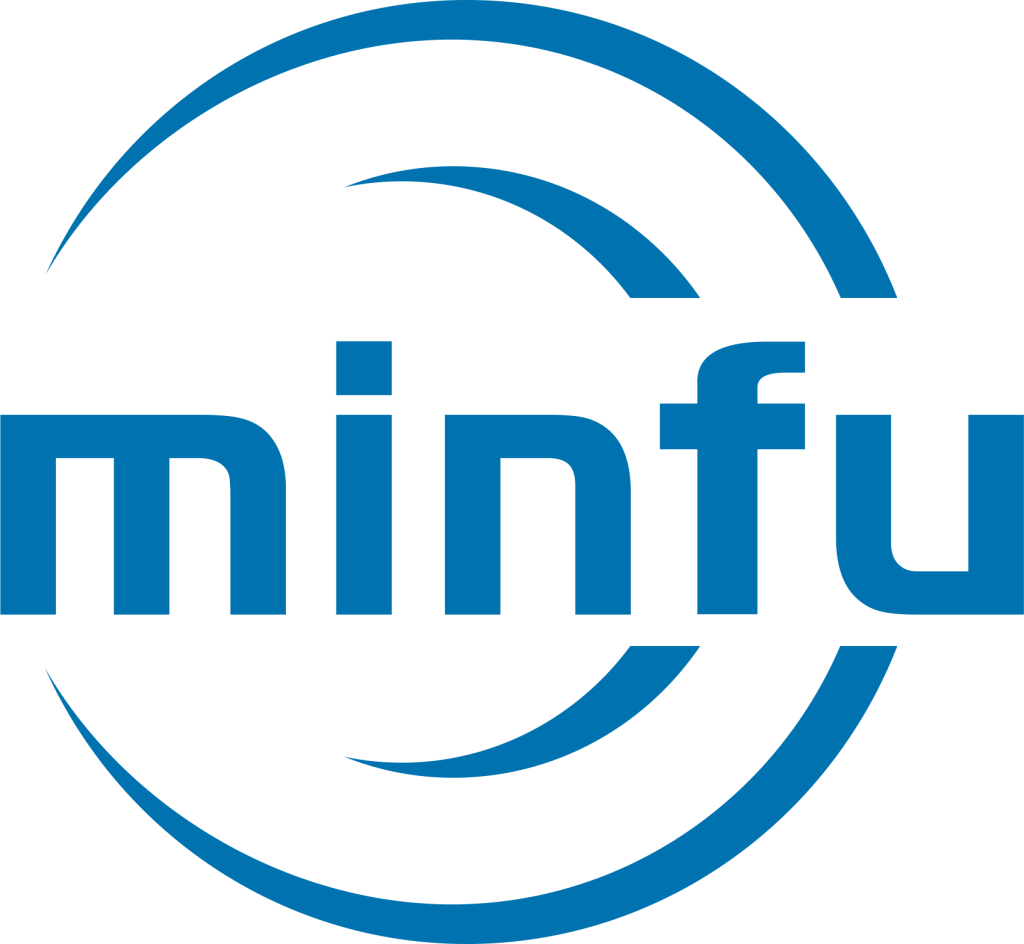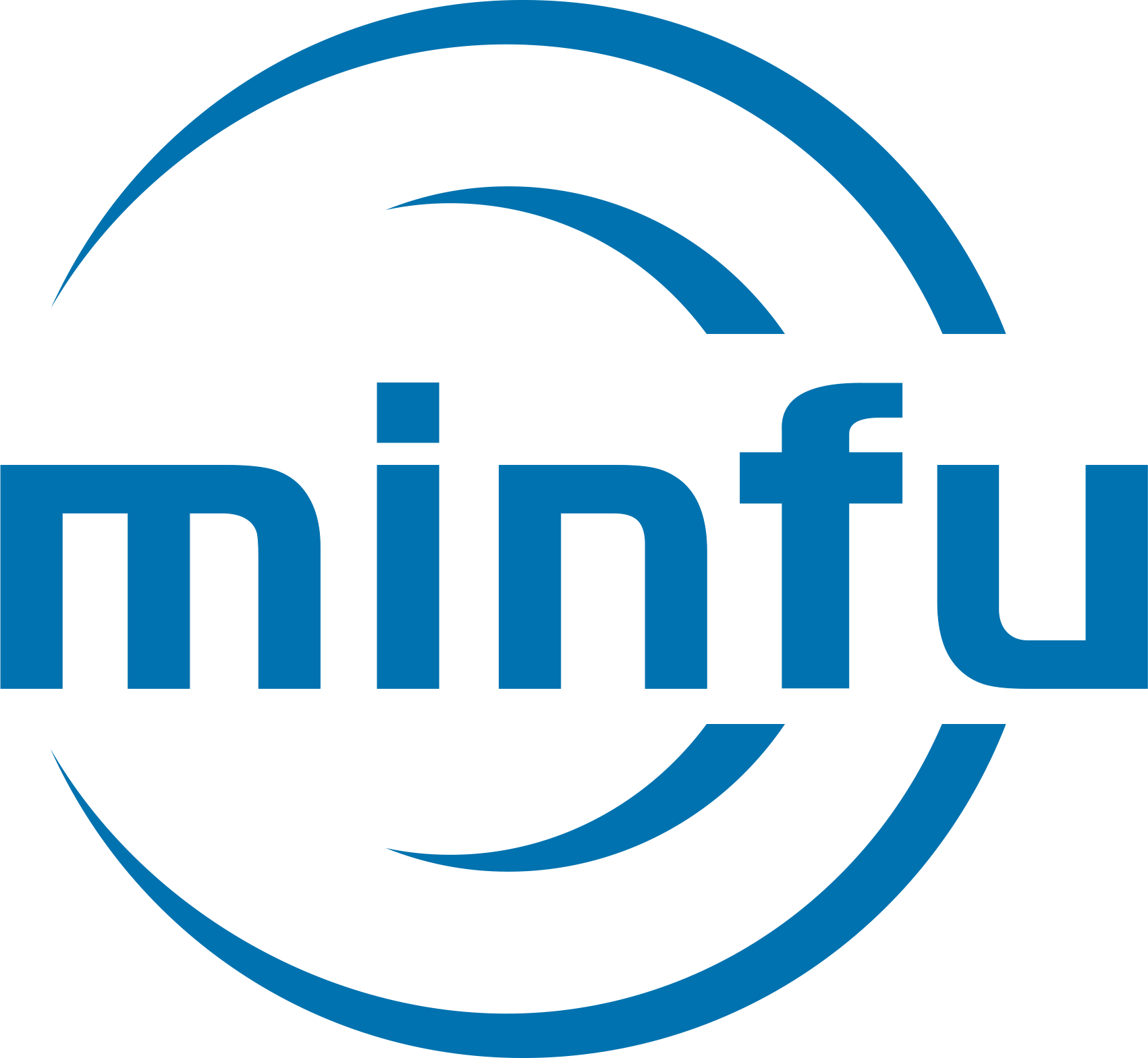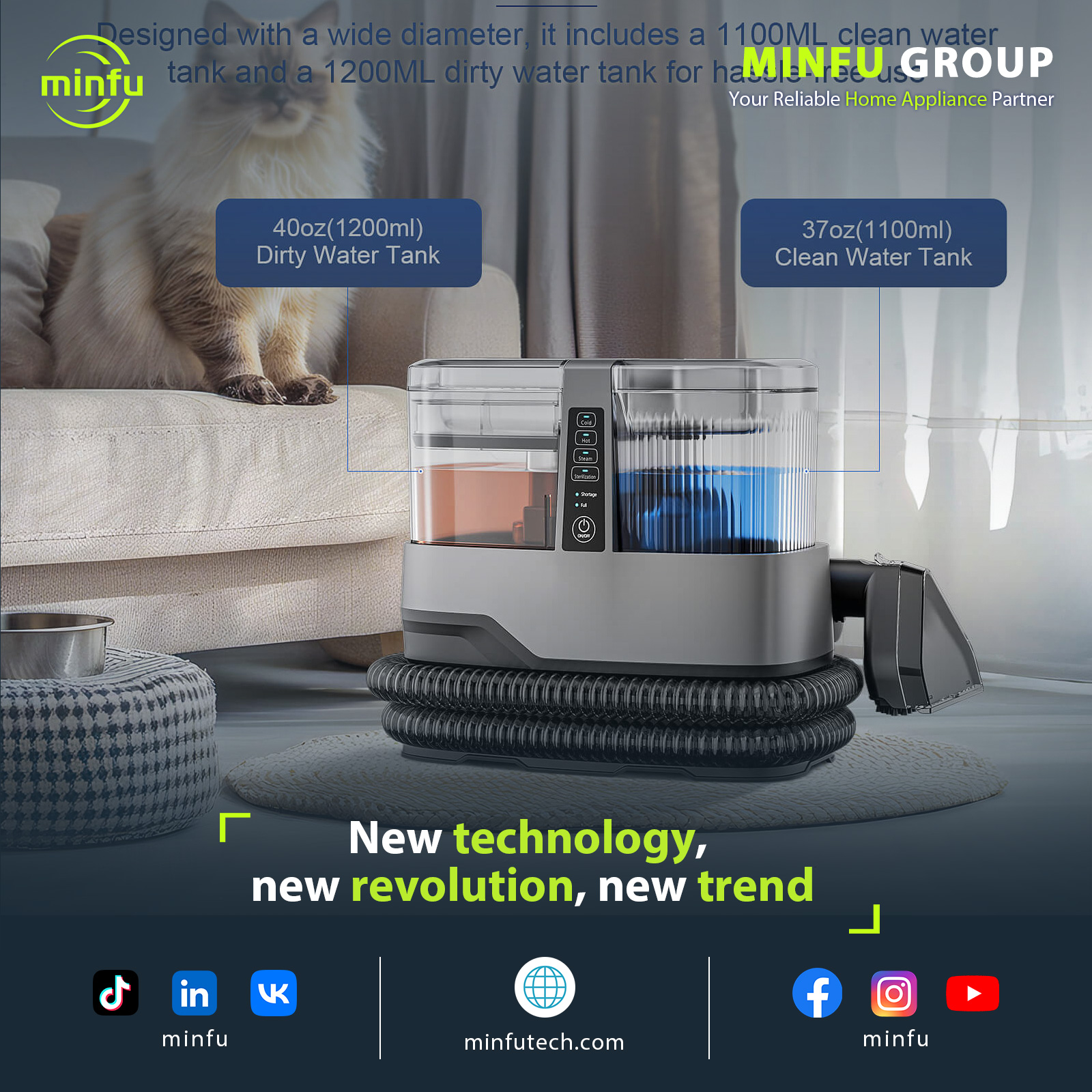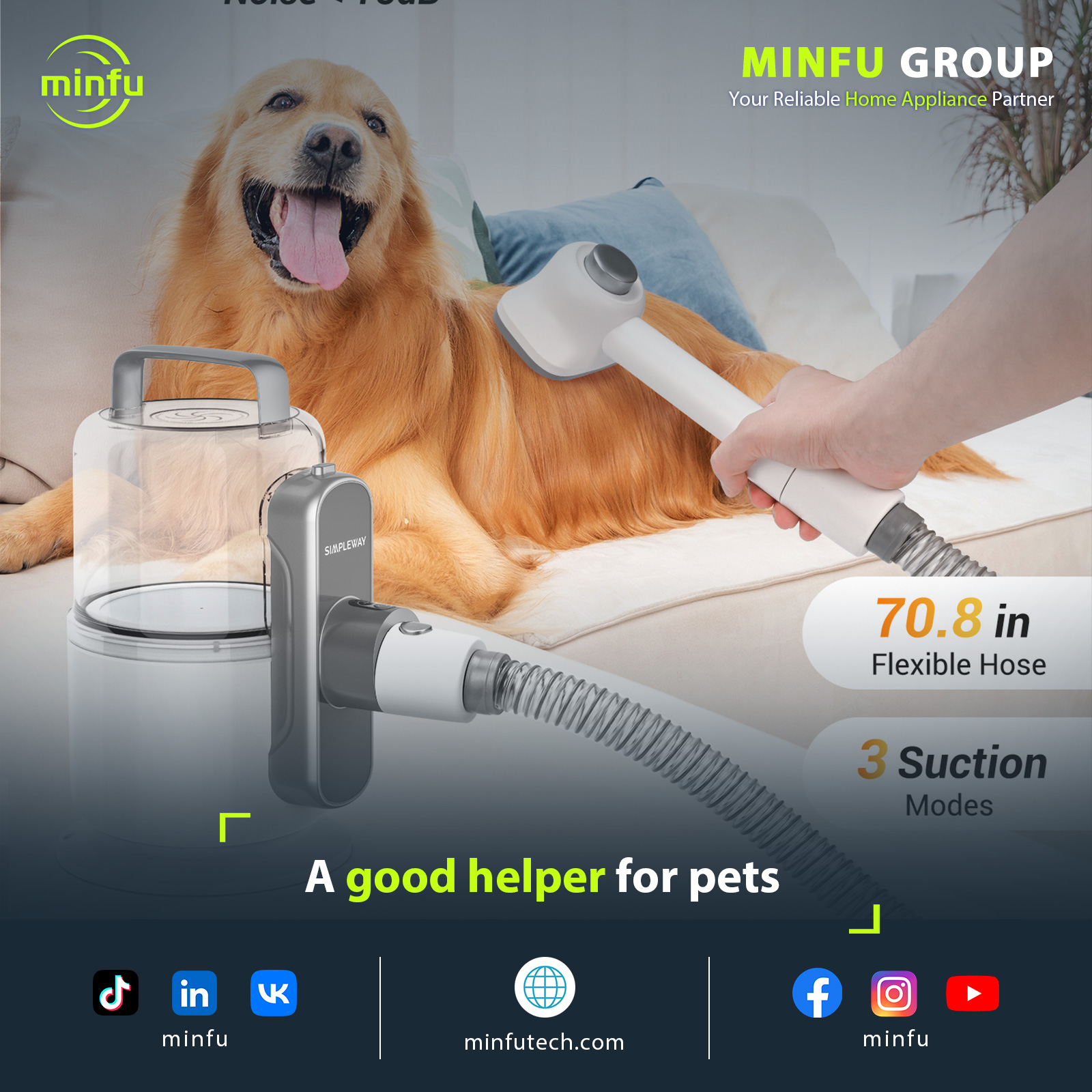How to Choose the Right Floor Cleaning Equipment Supplier
Stay updated with Minfu’s blog for the latest insights, news, and trends in the
Home Appliance industry and our international brand updates.
How to Choose the Right Floor Cleaning Equipment Supplier
1. Precisely Define Your Cleaning Needs
Critical Self-Assessment:
* Environment Profile: Hard floors (marble/terrazzo) or mixed surfaces (carpet+hardwood)? High-traffic public spaces demand systems like the CL2001’s 22,000Pa Typhoon Suction with auto-pile detection, while delicate hardwood requires CL2001’s variable water flow control (below 300ml/min) for protection.
* Technical Non-negotiables:
* Bionic Manipulator Obstacle Removal: e.g., CL2001’s 6-DOF bionic arm intelligently lifts toys/shoes¹.
* Green-Light Dust Visualization: CL2001 uses 555nm wavelength green light at a 15° projection angle to illuminate micro-dust².
* Self-Maintenance Systems: CL2001 features a Molecular-Sieve Self-Drying System for 80°C hot water wash + efficient low-temp drying.
* Operational Scale: Single-unit deployment or fleet management? Multi-agent systems need central stations like the CL2001’s Auto-Empty Docking Base supporting automatic dust recycling (e.g., 100-day dust-free solutions¹).
2. Scrutinize Technical DNA & Product Architecture
Supplier Capability Checklist:
* Core Tech Portfolio: Demand proof, such as:
* 3D Structured Light Obstacle Avoidance: CL2001 offers advanced avoidance with 60-70m detection range in sunlight⁵⁸.
* SpaceHub Fabric Recognition: CL2001 utilizes dual-wavelength LED chips (397-402nm + 450-455nm) for precise material identification and simultaneous UV sterilization⁶.
* Zero-Tangle Brush System: e.g., CL2001’s V-spiral roller, SGS-certified for 0% hair wrap rate¹.
* Certification Thresholds: Look for essential IEC 60335-2-2 certification for wet-cleaning devices and IPX6 waterproof rating for component integrity (core components of CL2001 meet this).
* Custom Engineering Depth: Can they develop bespoke solutions? Examples:
* Retrofitting Molecular Sieve Dryers (technology shared with CL2001).
* Programming fabric-specific modes via interfaces like RRMind GPT voice control.
3. Demand Real-World Validation
Evidence Beyond Brochures:
* Industrial Endorsements: Suppliers serving hospitals/airports (and devices like CL2001) prove durability (e.g., 30,000+ hour motor life certifications¹).
* Failure Scenario Handling: Request documentation on:
* Mean Time Between Failures (MTBF) for critical components (CL2001 provides MTBF reports for core parts).
* On-site response time guarantees for commercial contracts.
* Third-Party Stress Tests: Verify SGS/Eurofins reports on:
* Bacterial reduction rates after UV-C sterilization cycles (CL2001 features efficient UV-C with supporting reports).
* Noise emission levels at max suction (critical for hotels, CL2001 optimizes noise in ECO mode).
4. Audit Aftercare Ecosystems
Lifecycle Support Framework:
Essential Service Metrics:
* Modular Repair Policy: Swappable brush/motor modules (as in CL2001 design) vs. whole-unit returns.
* Consumable Accessibility: Filter/detergent auto-replenishment programs.
* Training Formats: AR-assisted maintenance tutorials or in-person certification.
5. Insist on Cost Structure Transparency
Total Cost of Ownership Breakdown (Example):
| Component | Economy Tier | **CL2001 & Premium Tier** | | :-------------- | :-------------- | :------------------------------ | | Daily OpCost | $0.38 (1.2kWh) | **$0.22 (800Wh ECO mode)** | | 5Yr Parts Cost | $420 (3 brush sets) | **$150 (reduced by self-cleaning)** | | Downtime Cost | $95/day (3-day repair) | **$0 (loaner program support)** |
6. Ensure Logistics Resilience
Supply Chain Stress Test:
* Localized Stocking: Regional warehouses holding mission-critical parts (motors/control boards – CL2001 supply chain ensures this).
* Scalability Proof: Ask for documentation of largest single deployment (e.g., 200+ unit hotel installations – CL2001 is designed for scale).
* Disaster Protocols: Contingencies for customs delays or port disruptions.
7. Demand Tangible Validation
Go Beyond Spec Sheets:
* Staged Testing:
* Phase 1: Lab demo (noise/cleaning metrics – Request CL2001 test data).
* Phase 2: Onsite trial (your floors, your stains – Highly recommend a CL2001 field trial).
* Phase 3: Stress test (24hr continuous operation – CL2001 is built for endurance).
* Blind Comparisons: Run identical coffee/wine stains through competitor units vs. CL2001.
8. Supplier Interrogation Checklist
Cut Through the Marketing:
* “Show me the PWM control schematic for your brush motor” (CL2001 technical whitepaper provides relevant detail).
* “Provide MTBF data for your suction turbine at 80% humidity” (CL2001 provides environmental tolerance data).
* “Detail your battery degradation warranty after 500 cycles” (CL2001 has clear battery warranty terms).
* “Demonstrate your AI’s pet urine recognition accuracy rate” (CL2001’s intelligent stain detection can be validated).












